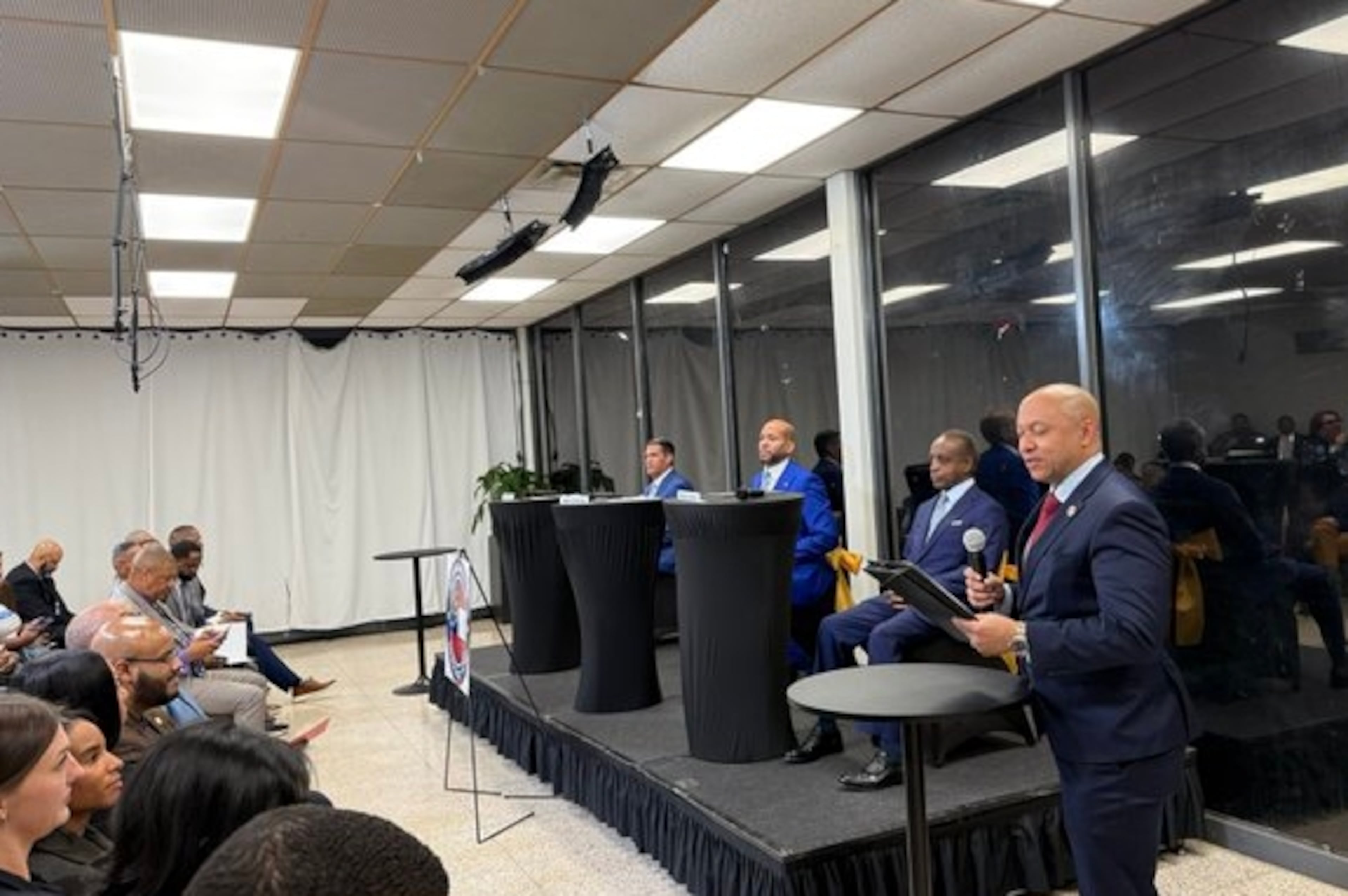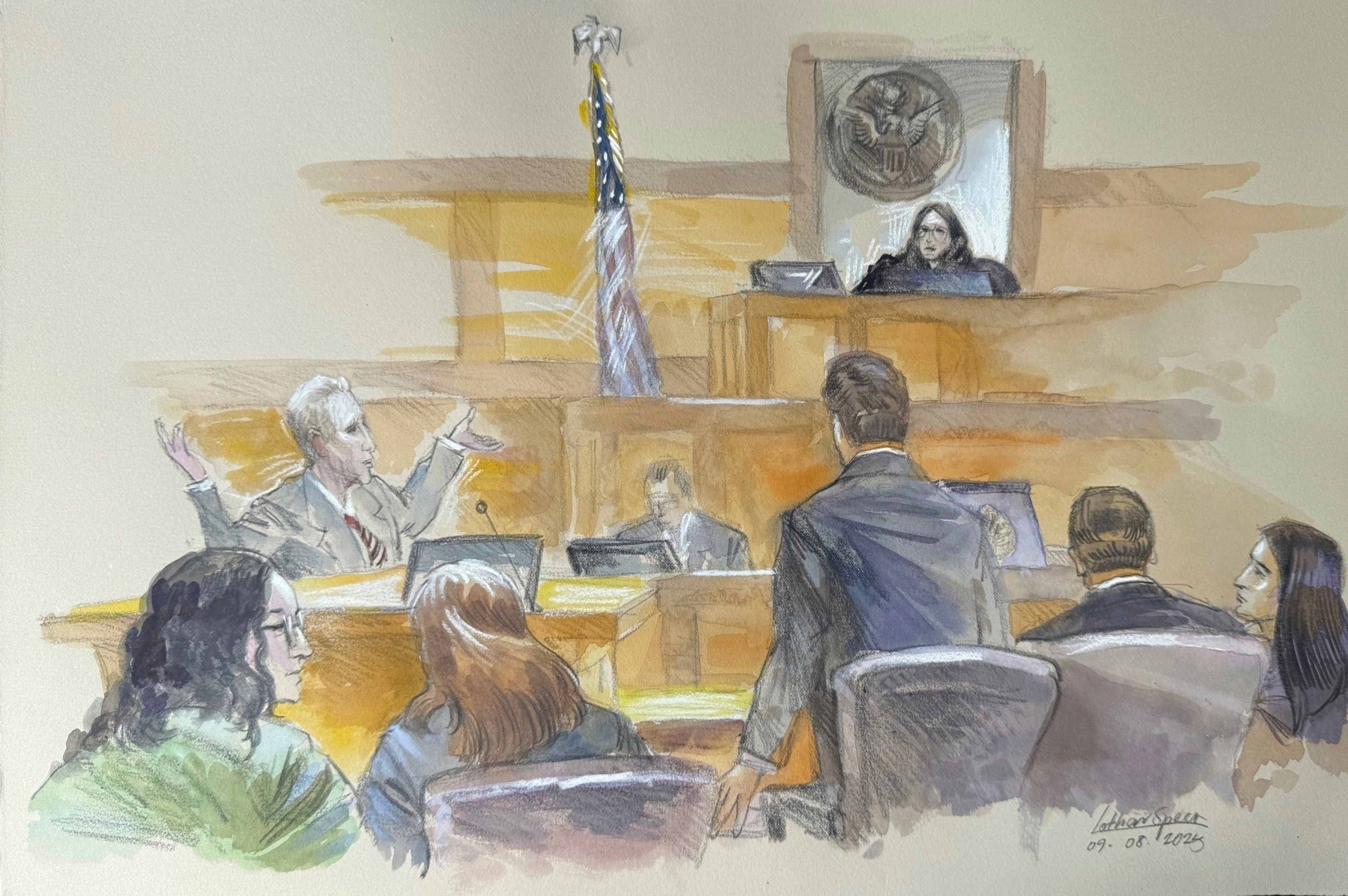From trespassing to violent assault, Georgia’s Jan. 6 defendants have a clean slate
President Donald Trump’s sweeping pardons issued in the first hours of his new administration wiped away the criminal records of more than 1,500 people charged with participating in the U.S. Capitol riot four years ago.
That includes 44 people with Georgia ties, about half of whom were still in the courts waiting for the final outcomes of their cases.
“This is a big one,” Trump said as he signed the pardon order from the Oval Office on Monday night. “We hope they come out tonight, frankly.”
The pardons were broader than most observers — even some inside the new administration — were expecting. They were “full pardons,” Trump said, covering anyone “convicted of offenses related to events that occurred at or near the United States Capitol on January 6, 2021.” The document also instructed the attorney general to dismiss any pending indictments for defendants not yet convicted.
Following the pardons, Trump named conservative activist Ed Martin, who served on the board of a group that advocated for Jan. 6 defendants, as interim U.S. Attorney for Washington, D.C. Martin was a prominent member of the Stop the Steal movement that pushed the discredited theory that Trump won the 2020 presidential election.
On Wednesday, Martin filed motions in U.S. District Court to dismiss pending actions against Jan. 6 defendants.
Other charges remain for some
Yet even a presidential pardon is not the end of some defendants’ legal problems.
Decatur resident Matthew Jay Webler was arrested in December 2021 and charged with three misdemeanors for being part of the mob that entered the Capitol. The 46-year-old contractor was captured by security cameras walking through the Capitol in bright yellow jacket and a QAnon flag he wore as a cape.

Webler posted to social media about his actions on Jan. 6, boasting in a selfie video taken inside the Capitol saying, “It’s my birthday, and it’s the best one ever.”
When FBI agents came to his home to question him about his actions on Jan. 6, they found an illegal hand-built, short-barreled rifle and three silencers. Webler entered into a plea agreement on the weapons charges and was sentenced in September 2022 to 57 months in prison and three years’ probation. He is currently in federal prison in South Carolina with an expected release date in February 2026.
For much of the past year, Dominic Box, a Savannah activist and conspiracy theorist, has been in custody at a correctional treatment facility in Washington, D.C., where he was awaiting sentencing after being found guilty of two felony counts of causing a civil disorder.
But Box has been in custody since August 2023 when he was arrested on DUI charges in Jacksonville, Florida, after a sheriff’s deputy found him unconscious in his car in the parking lot of a barbecue restaurant. Box’s attorney in Florida said he anticipates settling his client’s charges in Florida on Thursday with guilty pleas and a sentence of time served.
Violent acts
Among Georgia’s defendants, Trump’s pardons covered 12 men charged with assaulting police during the riot. Four of them pleaded guilty to the charge and two others were found guilty at trial. Six of them had not had their day in court and now never will.
They include people like Michael Bradley, a mechanic from Forsyth, who was found guilty during a trial in August of striking a police officer with a collapsible baton during intense fighting on the Capitol’s Lower West Terrace. Police had set up a defensive line inside the tunnel, which lead to an entrance on the Senate wing where members of Congress were evacuating.
Bradley had moved to the front of the line of rioters but was forced back by chemical spray. He returned to the fight a minute later. That’s when prosecutors said he struck the officer.

At sentencing last month, Bradley’s attorney attempted to delay his trip to prison, noting that Trump had vowed to pardon the Jan. 6 defendants. U.S. Senior District Judge Reggie B. Walton, an appointee of then-President George W. Bush, denied the motion.
“Speculation about what the future President might do once he takes office cannot trump what the legislature commands a judicial officer must do following a criminal conviction,” the judge wrote.
Bradley was sentenced to 60 months in prison, the longest of any Georgia charged in the riot. On Wednesday, Bureau of Prisons records showed Bradley as an inmate in a federal detention center in Philadelphia.
Bradley is one of 16 Georgians to have been sent to prison, with sentencing ranging from 20 days to several years, although nearly half of those receiving sentences of less than two months. Another nine Georgia defendants received probation, rather than prison.
A fresh start
Although Trump and his supporters have repeatedly referred to the defendants as “hostages” or “political prisoners,” most are not in custody. Aside from Bradley, only three other Georgians were in custody when Trump signed the order.
Thirteen Georgians have not taken a plea deal or had their charges brought to court and are out on bond. Only in very rare cases were defendants held without bond and defendant commonly were given appearance bonds, meaning they promised to return for hearings and did not have to post a monetary bond.
For some, the pardons could clear the way for defendants to resume their professional lives. Lisa Maria Eisenhart of Woodstock was a registered nurse when she was arrested for entering the Capitol with her son, Nashville resident Eric Munchel. The duo provided some of the lasting images of the riot when Munchel grabbed a handful of plastic wrist restraints and was photographed leaping over seats in the Senate gallery with them in his hand, earning the online nickname “the zip-tie guy.”

Eisenhart and Munchel were charged with felonies and misdemeanors and were found guilty at trial. Eisenhart was sentenced to 30 months in prison, but was released following a Supreme Court decision that vacated her felony charge. She was awaiting resentencing on her misdemeanor convictions when Trump issued his pardons.
Eisenhart’s license to practice was suspended a year ago following her conviction, but that could change since her criminal record — like the rest of the defendants — is now clean.
The only exceptions to Trump’s pardon order are 14 leaders of the far-right groups the Oath Keepers and the Proud Boys who had their sentences commuted. Trump said his team was “doing further research” on those cases.
Proud Boy leader Enrique Tarrio, who is serving 22 years following his conviction on seditious conspiracy, was not on the list of commutations, making him the rare exception among noted extremists to receive a full pardon.



